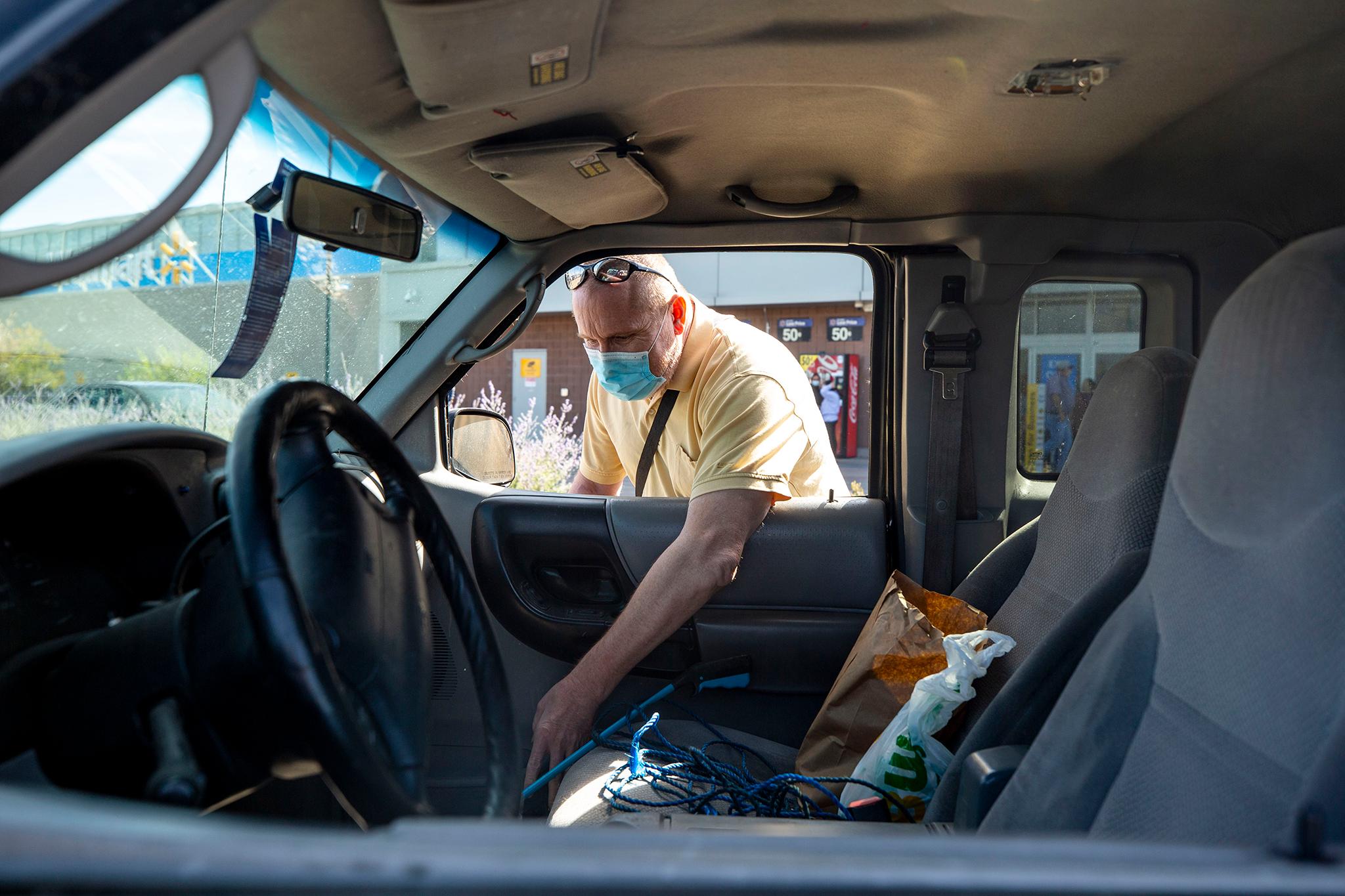The black truck with more than 270,000 miles on it had been Duane McCormick's home for a year.
Then, just as the pandemic hit the Denver area, the 55-year-old got housed. But ending homelessness isn't just about getting a man in a room.
McCormick, who has had back trouble since a construction site fall years ago, found his condition deteriorating as he was settling into a room in a shared house in Littleton. In addition, he learned he had pancreatic cancer. He was in and out of the hospital for disc and other surgeries, keeping him from finding work. Without a job, he was relying solely on disability payments for expenses that included $500 a month in rent for the room.
When he left a physical rehabilitation facility in late September, McCormick moved out of the room in Littleton and back into his Ford Ranger XLT. His landlord had told him not to worry about having fallen behind on the rent.
But "it's unfair for me to keep dragging it out. I'm always a month behind on the rent. I don't see catching up," said McCormick, who has a background in construction and a love of reading the Bible. "The day I got out of rehab is the day I moved out. I just packed up my truck and left. I made that decision, and I did it."
Last year, on a day he found it too cold to be in his truck, McCormick decided to visit the Aurora Day Resource Center, a day shelter set up in an old police gym on the Anschutz medical campus. A case worker there helped him apply to several programs. After a few months, McCormick heard back from the Aurora Mental Health Center about its rapid rehousing program.
Lori MacKenzie, spokeswoman for the Aurora Mental Health Center, said that generally, people in the rapid rehousing program are initially given rent subsidies. Having a stable home is seen as a way to help participants find jobs or better paying work. The goal is that over three months with the possibility of a three-month extension, participants gradually pay more of their own rent until they can cover it all.
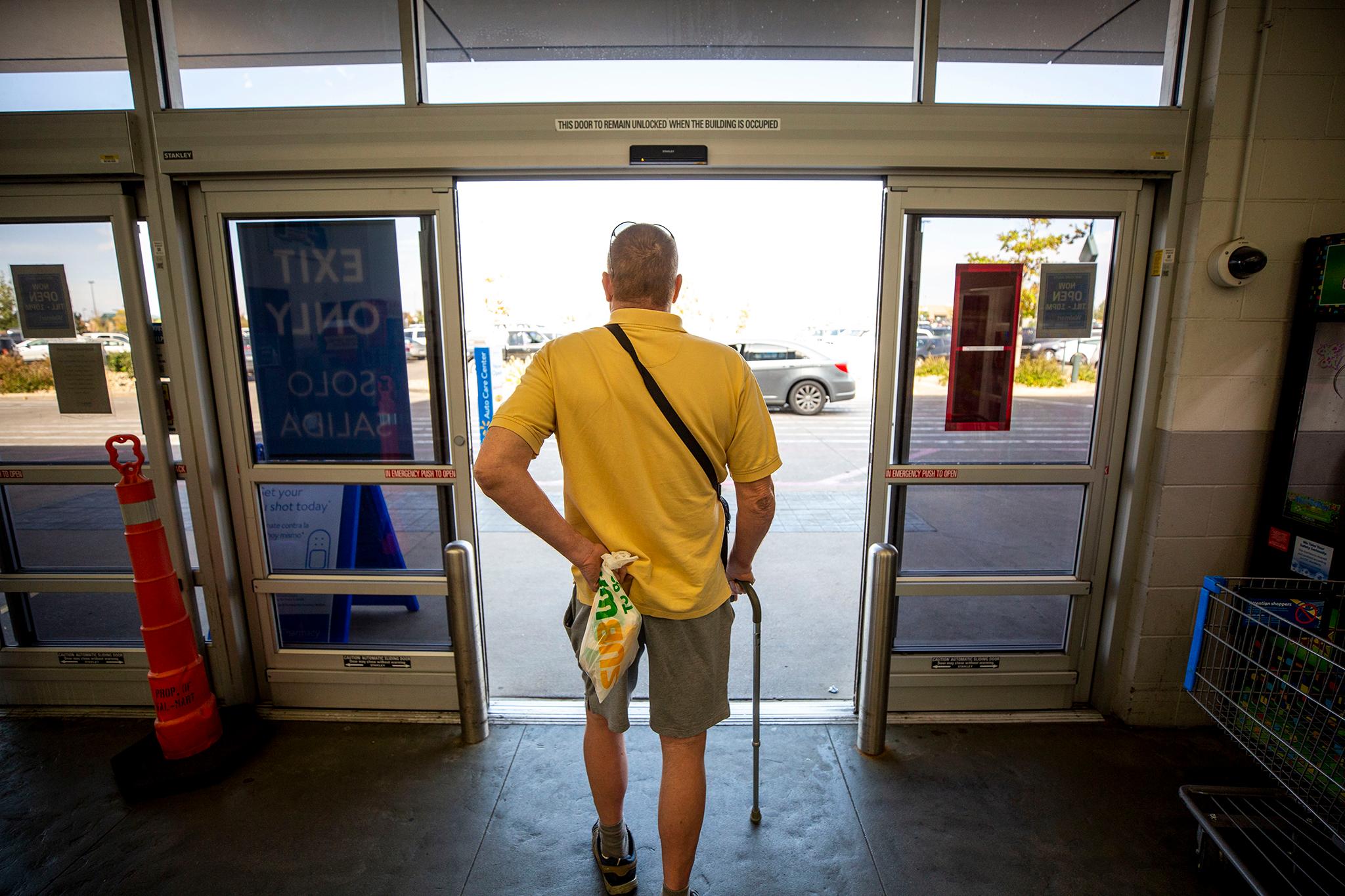
With a place where he could sleep comfortably and shower and put on clean clothes before heading out to job interviews, McCormick was at first confident he could get work in the construction industry.
The rapid rehousing program covered his first month. The next month he paid $125, $275 the following month and $375 the month after that. Then he was expected to pay the entire $500. But every month, he was increasingly ill.
His landlord, Jeff Casselman, learned that McCormick was struggling and arranged to meet with him. Casselman concluded from McCormick's tense posture when they sat down together that his tenant expected to be evicted.
"Talking to somebody over the phone, I would never have been able to see that," Casselman said.
Casselman told McCormick not to worry about the rent for now, saying they could work out a payment plan later. Casselman told McCormick, "Just do what you need to do. Take care of yourself. I don't want you to be worried that you're going to be out on the street."
McCormick found it hard not to worry as he tallied the $783 in disability benefits and about $200 in food stamps he receives monthly.
"That's my income. Period. Because I can't work," McCormick said.
McCormick weighing that against rent, insurance, maintenance and gas for his truck, phone service and other expenses. "You run out (of money) at some point," he said.
While his landlord had sat down with McCormick, case workers from the Aurora Mental Health Center did not. MacKenzie, the center's spokeswoman, said that before the pandemic, staff would typically check in by phone and in person with people in all of its housing programs
"A household gets anywhere from quarterly contact to weekly contact based on the needs of the household," MacKenzie said in an emailed response to questions. "Mental health and physical health concerns are often the biggest barriers to housing and income stability and are the indicators that lead us to more frequent contact."
Many of the people in the households that MacKenzie's center supports are, because of age or other factors, considered at high risk for the worst affects of COVID-19. For that reason, MacKenzie said that since the pandemic, outreach has been largely restricted to telephone conversations.
"Our services across the whole program have changed dramatically due to the pandemic," she said. "Home visits are limited to urgent needs only and staff are not often actually in homes, rather having discussions at the door."
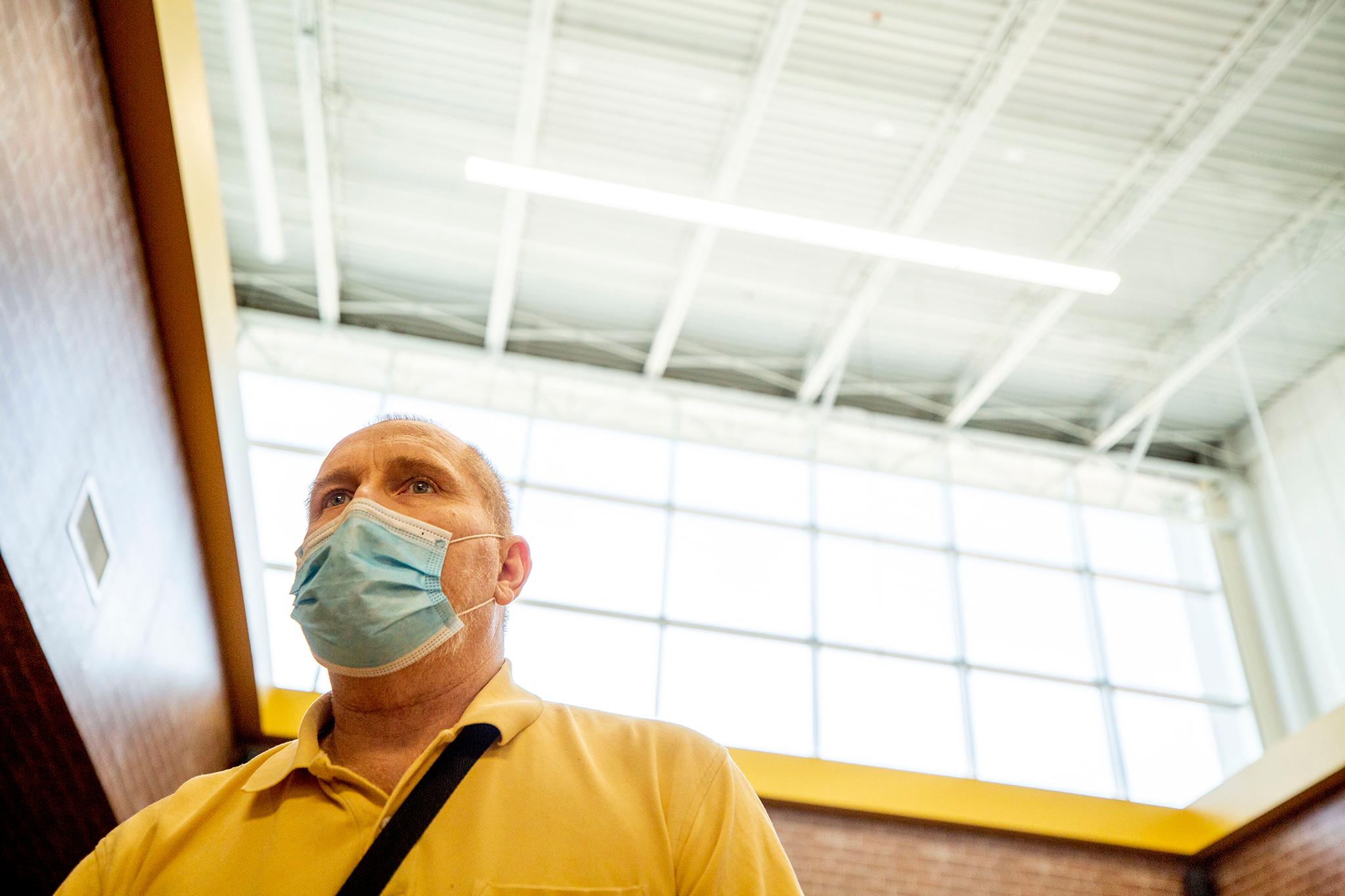
Other service providers have encountered similar challenges.
The Colorado Coalition for the Homeless has several apartment complexes that people on low incomes can afford. The coalition in recent months purchased some 600 mobile phones to distribute to people it supports with housing and other services, said Cathy Alderman, spokeswoman for the coalition. Coalition staff who can't see clients in person because of the pandemic are using the phones to keep in touch with people who need job or mental health counseling, advice on using public transportation. In some cases, doctors might check in by phone to make a diagnosis based on a person's description of his or her symptoms, Alderman said.
The "supportive" in what's known as permanent supportive housing for people emerging from homelessness is "having someone to work with you to help you with those things that can overwhelm somebody," Alderman said.
Veterans Affairs staff have been distributing mobile phones to people experiencing homelessness to help them stay in touch with case managers during the pandemic. But some things, such as helping with moves into housing, have to be done in person, said Jennifer Daly, a VA social worker in Denver. VA outreach teams are still meeting people on the streets or in their cars, sometimes to follow up if a client causes concern by missing a phone appointment. The outreach workers wear personal protective gear and meet outside to ensure social distancing.
"If we can't check in on you virtually, then we're going," Daly said.
Shelley McKittrick recently left a post as the city of Aurora's homelessness program director to work for an affordable housing developer. She said it's not unusual for people who have been homeless for long periods to face serious health problems when they at last get housing. They may have been too focused on their housing crisis to address a heath crisis, she said. McKittrick said the Denver area and the nation as a whole lacks resources such as an assisted living facility that the Colorado Coalition for the Homeless plans to build on what is now the parking lot next to its Five Points clinic. Patients won't be able to move into the planned assisted living facility until 2022. Until then, people such as McCormick have few options, McKittrick said.
McKittrick was not involved in McCormick's case. After hearing the details, she said that if his poor health had been evident earlier, case managers might have concluded that it wouldn't have worked to send him to a program in which he was expected to get a job within a few months. But finding suitable housing would have taken time.
"He could have wound up in his car longer," McKittrick said. "We just don't have enough permanent supportive housing."
Even before the pandemic, and even for those without McCormick's health challenges, MacKenzie said many of the people that her Aurora Mental Health Center helps house find it difficult to keep up with their bills in metro Denver's "ever increasing rental market."
"We have definitely seen income stability problems during the pandemic," MacKenzie added, saying that many clients were working in the service industry, which has seen shutdowns and layoffs because of the pandemic.
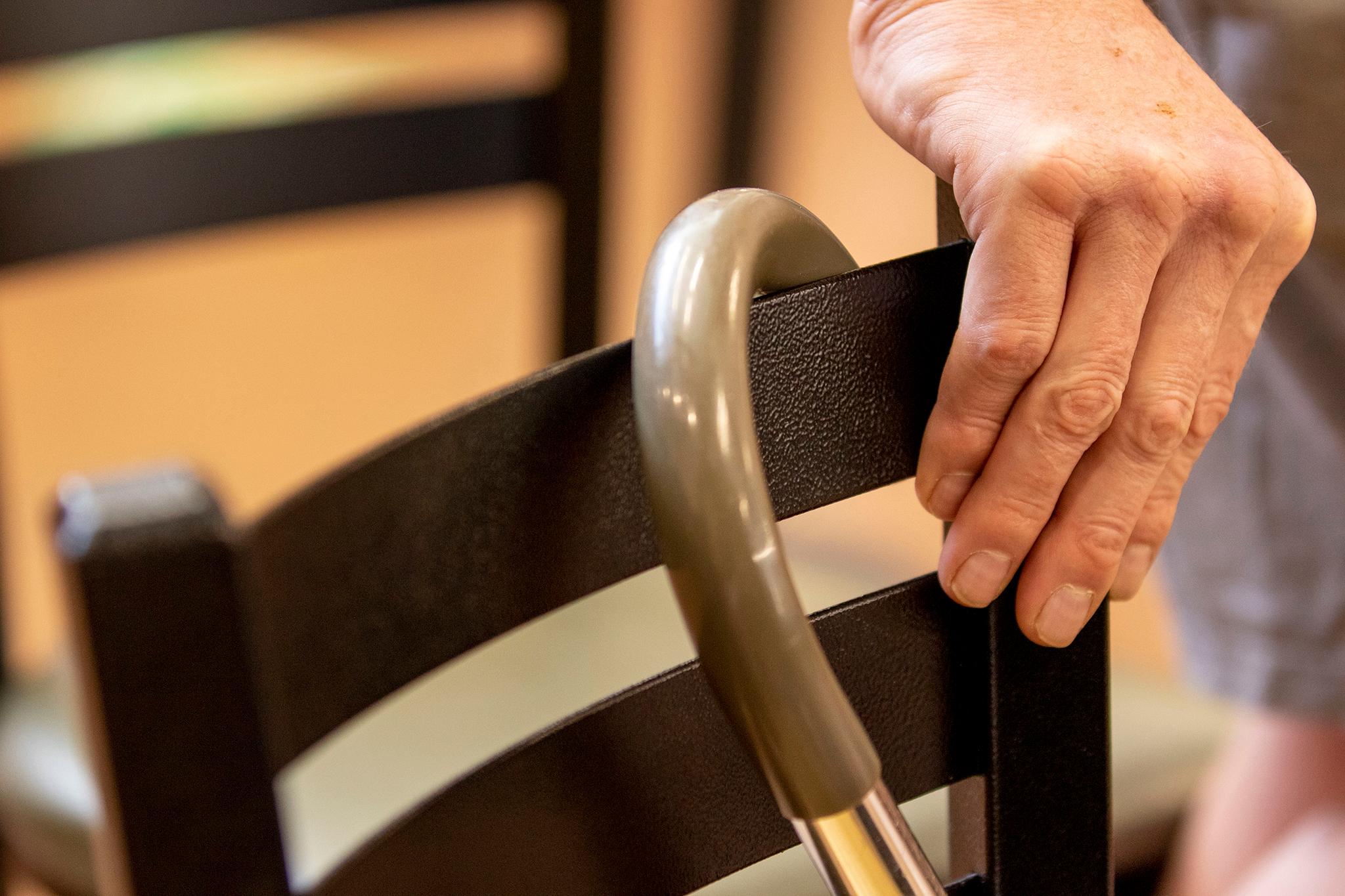
"Clients have seen a significant decrease in wages," MacKenzie said.
The Aurora Mental Health Center had turned to a social worker who has her own real estate business, Brittany Katalenas, to find housing for McCormick in a region where rents have for years increased faster than wages. Katalenas, who experienced homelessness when she was young, has a company that provides house-hunting and other services for people on low or fixed incomes. She has a network of landlords who can offer low rents and are willing to work with service providers.
Katalenas said she founded her company B-Konnected two years ago to work independently in part because she was concerned that bigger agencies focused on getting as many people housed as possible were losing touch with individual needs. Housing, she said, is only the first part of the journey.
Katalenas is looking for housing McCormick can afford and plans to stay in touch with him. She wouldn't blame him if he had lost faith in the system.
"He did not get the services that, A, he signed up for and that, B, we as a system should be providing," Katalenas said. "Is it Duane's fault that he couldn't come up with the rent? Or did the system set him up for failure?"
Back in his truck, McCormick is relying on hard-won knowledge about surviving without a home. He doesn't leave items in his truck that thieves might see, instead renting a storage locker for most of his belongings. He refused a wheelchair he was offered as he left the rehabilitation center, unsure how he would get it in and out of his truck.
He knows which day shelters he can go to for a shower, and which fast food restaurants and Walmarts have internet service he can use from parking lots after hours. He's on a first-name basis with the maintenance man who cleans the lot at his preferred Walmart, one off Interstate 70 in Aurora. He jokes with the Walmart greeters in the same affable manner he'd teased nurses and doctors in the hospital. McCormick said he could see himself working as a greeter, if he were strong enough to stand for long hours.
He doesn't feel safe sleeping at night, so finds quiet streets where he can park and nap during the day, staying away from areas where he's seen criminal activity such as drug dealing and prostitution.
McCormick, who made 512 saves as a goalie for Missouri Southern State University's soccer team in the 1980s, is clearly frustrated by the physical limitations he faces now. He left the rebab center with a cane, but tries to walk without it. He said he was once an avid hunter, fisherman, hiker and camper. McCormick, who wears his sandy hair in a buzz cut he maintains with his own clippers, stresses self sufficiency. He also relies on his faith.
"I'm still responsible to be proactive. I can't not do anything. But He's always provided for me," he said. "It's only through the grace of God that I've gotten through this."
McCormick talks little about his cancer diagnosis, other than to say he is on medications. In addition to cancer and his back trouble, he's dealt with ulcers, and he had a benign cyst removed from his throat. He's been told full recovery from his back surgery could take a year.
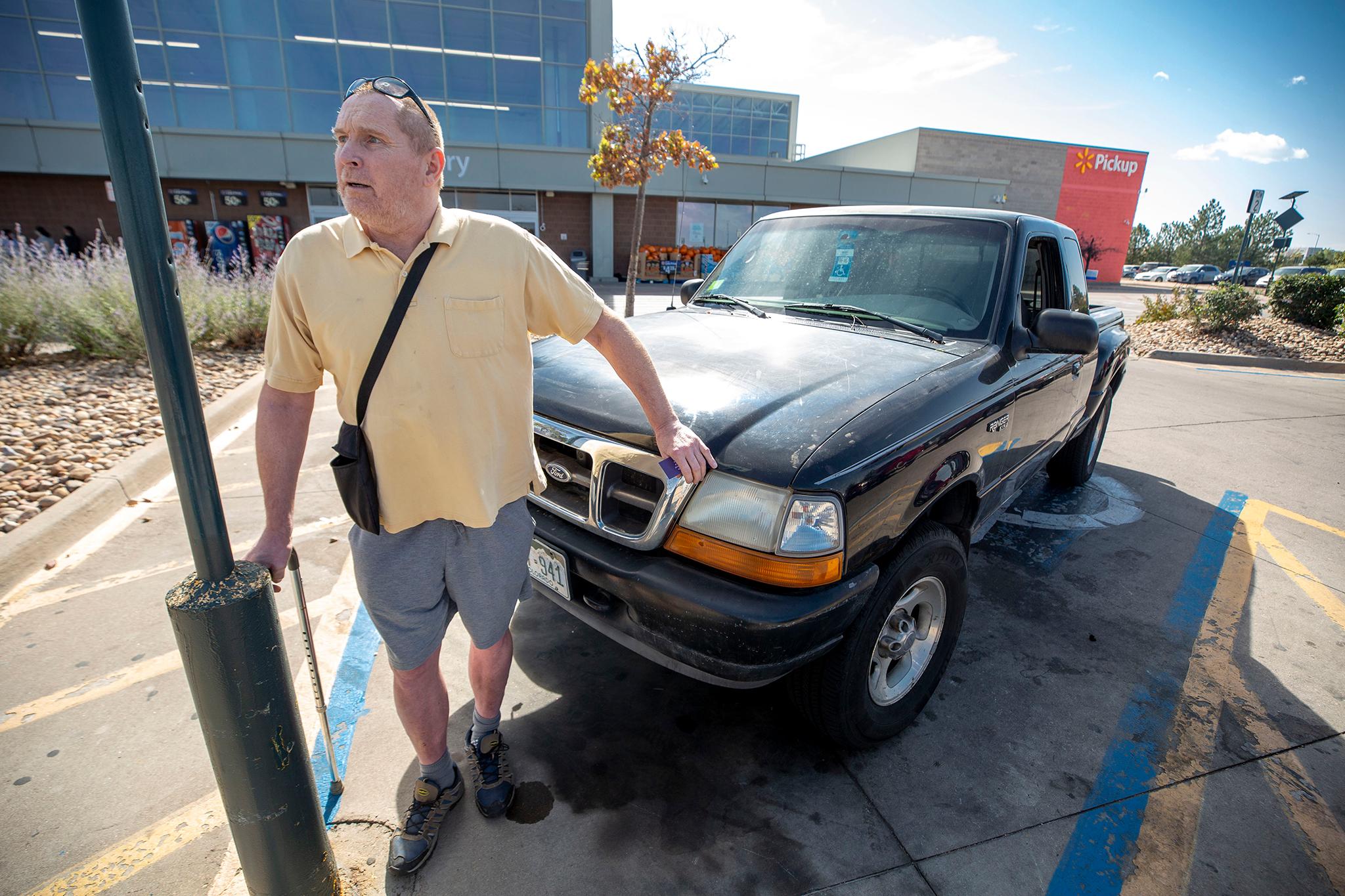
"I'm a mess," he said. "From April 18th to the 25th of September, I've had four operations. I've been hospitalized 59 days, four hospitals during this time. And I still have hope. You will always find hope if you look for it."
It took a year to get out of his truck the first time. This time he has a plan: to spend October in his truck to save for a down payment on an apartment and to find a roommate to help him save on housing costs. He acknowledges is could take some time to find something he can afford, even with a roommate. He has considered leaving the Denver area, where he has spent his life.
"I can't afford this economy," he said.
A manager of an affordable housing property in the Denver area had recently put McCormick on a waitlist, telling him it could take a year to move to the top.
"How much hope is there in that?" McCormick said. "Where do I find hope? Christ."
McCormick said he learned during the previous stint he spent living in his truck that "you're not going to get out of this hole without hope."
He's thankful for Medicaid, which has covered his medical expenses. And for his truck.
"What about the people that don't have that?" he said. "Where are they? You will always find hope if you look for it. I've never been down. I look at Psalms 46:10."
He quoted the Bible verse: "Once you've done everything you can, be still and know I'm God."

